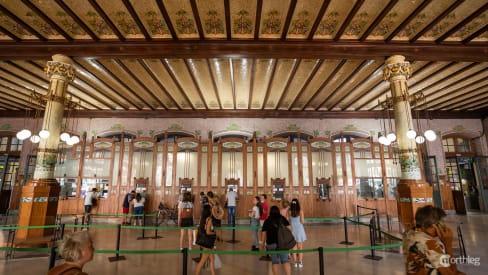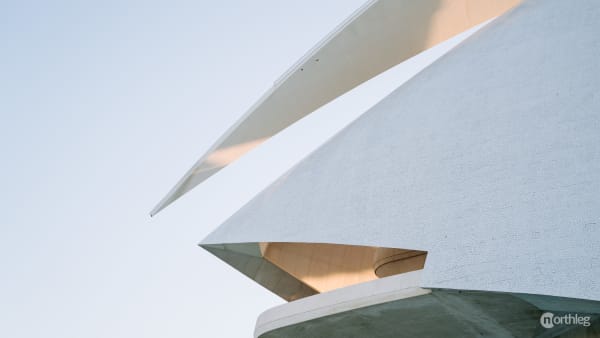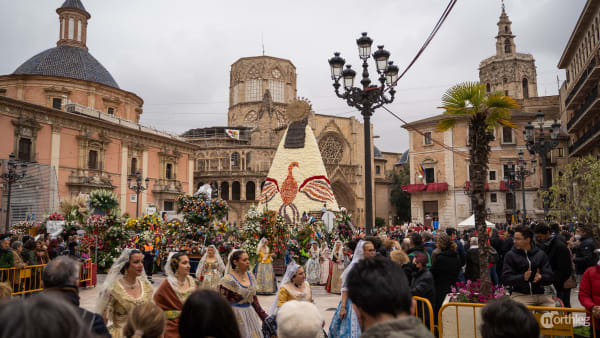Architectural elements and style
Architectural elements and style
Estación del Norte is a monumental Valencian landmark. Like other sights in the city (such as the Central Market), it is representative of the Valencian Art Nouveau movement, known in Spanish as Modernismo Valenciano .
This particular taste is visible in the amalgamation of architecture with sculpture and the decorative arts. The building integrates carpentry, forged iron, and ceramics into its structure.
The structure
The structure of the building can be simplified as having three main components. Two stand on either side of the train tracks, while a third, larger section, stands as a façade.
The main façade is organised with a central pavilion and two protruding bodies at the sides, which rise higher than the rest of the building, like towers.

In front of the façade is a large uncovered courtyard, enclosed by a Viennese-style gate that separates the station from the busy streets. This two-storey façade combines mouldings, pilasters, and classically inspired elements.
Behind the facade is a foyer where you’ll find the antique ticket offices. Where the old cafeteria used to be, you’ll see the Sala de Mosaicos, a hall fully decorated in ceramic panels, mosaics and traditional trencadís. Past all this, are the platforms and tracks, sheltered by a vaulted metal roof.

The decorative elements
In the North Station the decoration is the decisive element. The majority of the ornaments you’ll see are a mixture of ceramic sculptures, painted ceramic tiles, glass, or trencadís. Trencadís is a mosaic made from tiny shards of broken tile, a technique typical of Valencian and Catalan modernism.

The colourful ornaments and details depict the Valencian Huerta (the productive fields surrounding the city), its people, and its products (oranges and blossoms in particular).
The façade is richly decorated with brightly coloured details and garlands. Numerous ceramic sculptures reproduce different floral ornaments and coats of arms (either representing the City of Valencia or the Compañía del Norte). The original entrance is decorated with two ceramic panels.
















